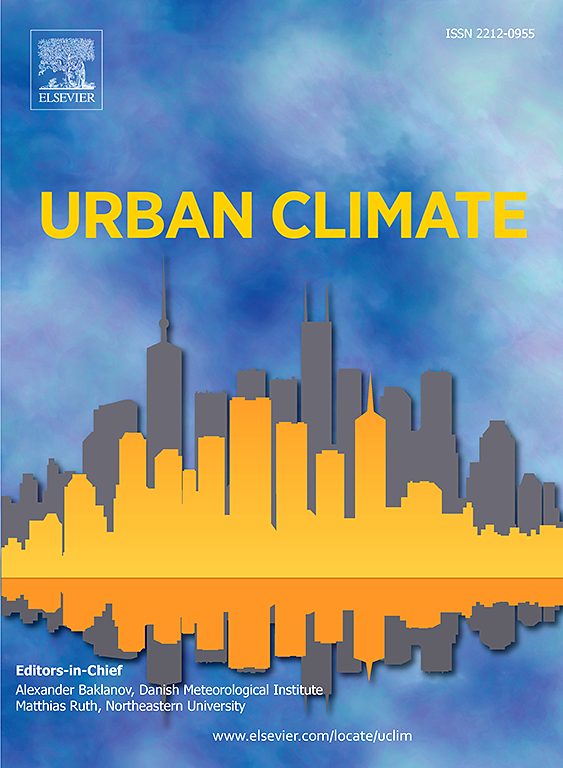中国异质特大城市LCZ地图标注不确定性的认知实验:引入多源地理空间数据和LCZ子类
IF 6.9
2区 工程技术
Q1 ENVIRONMENTAL SCIENCES
引用次数: 0
摘要
世界城市数据库和访问门户工具(WUDAPT)提供了一种基于监督机器学习方法的本地气候带(lcz)地图绘制的主流工作流程。然而,在异质城市环境下,由于标签不确定性导致的低准确率和多次迭代仍然是其应用的障碍。本研究在中国武汉地区进行了LCZ地图标注不确定度的认知实验。引入多源地理空间数据和LCZ子类认知,对训练区域进行预识别。64名参与者被随机分配到4个大小相等的团队中,每个团队在9次迭代的限制协议下专门评估指定场景的映射准确性。通过随机点抽样验证,将LCZ与子类识别映射的场景集表现出最优的性能,在5次迭代中可以达到83%的总体准确率(OA),达到89%的OA。本研究强调了LCZ子类认知在提高地图绘制精度中的关键作用,并提出了一种针对中国异质特大城市的扩展WUDAPT工作流程。新的工作流程提高了LCZ的分类精度,同时最大限度地减少了异质城市背景下的迭代,从而通过对中国特大城市气候相关城市形态的可靠描述,支持基于LCZ的研究。本文章由计算机程序翻译,如有差异,请以英文原文为准。
Cognitive experiments on labelling uncertainty for LCZ mapping across heterogeneous megacities in China: Introducing multi-source geospatial data and LCZ subclasses
World Urban Database and Access Portal Tools (WUDAPT) provides a prevailing workflow for mapping Local Climate Zones (LCZs) based on a supervised machine learning method. Yet, the low accuracy and numerous iterations caused by labelling uncertainty in heterogeneous urban context were still obstacles for its application. In this study, the cognitive experiments on labelling uncertainty for LCZ mapping were conducted over Wuhan, China. The multi-source geospatial data and LCZ subclasses cognition were introduced for pre-recognition on training areas (TAs). Sixty-four participants were randomly allocated into four equal-sized teams, with each team exclusively assessing the mapping accuracy of a designated scenario under a restricted protocol of nine iterations. Validated through randomized point sampling, the scenario set for mapping LCZ with subclass recognition show optimal performance, that it can achieve the overall accuracy (OA) of 83 % at five iterations, and reach up to OA of 89 %. This study highlights the critical role of LCZ subclasses cognition in improving mapping accuracy, and proposed an extended workflow of WUDAPT specific for heterogeneous megacities in China. The novel workflow improves LCZ classification accuracy while minimizing iterations in heterogeneous urban context, thereby supporting LCZ-based studies through reliable descriptions on the climate-related urban forms in Chinese megacities.
求助全文
通过发布文献求助,成功后即可免费获取论文全文。
去求助
来源期刊

Urban Climate
Social Sciences-Urban Studies
CiteScore
9.70
自引率
9.40%
发文量
286
期刊介绍:
Urban Climate serves the scientific and decision making communities with the publication of research on theory, science and applications relevant to understanding urban climatic conditions and change in relation to their geography and to demographic, socioeconomic, institutional, technological and environmental dynamics and global change. Targeted towards both disciplinary and interdisciplinary audiences, this journal publishes original research papers, comprehensive review articles, book reviews, and short communications on topics including, but not limited to, the following:
Urban meteorology and climate[...]
Urban environmental pollution[...]
Adaptation to global change[...]
Urban economic and social issues[...]
Research Approaches[...]
 求助内容:
求助内容: 应助结果提醒方式:
应助结果提醒方式:


